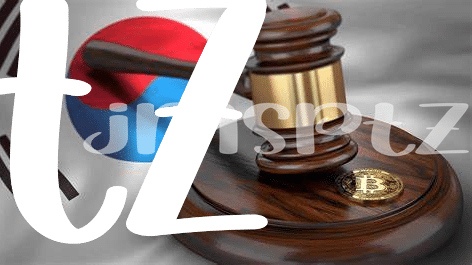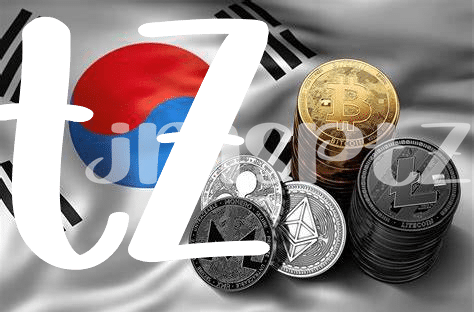Overview 🌍

In today’s ever-evolving digital landscape, the realm of cryptocurrencies stands as a dynamic and complex ecosystem. Within this space, South Korea’s approach to regulating cryptocurrencies serves as a fascinating case study that sheds light on the global standards prevalent in the industry. By delving into the intricacies of South Korea’s current regulatory framework and comparing it with global benchmarks, we can paint a comprehensive picture of the challenges, opportunities, and potential outcomes that lie ahead. As we navigate through these regulations and their implications on the crypto market, a nuanced understanding of the landscape will undoubtedly pave the way for insights and recommendations that can shape the future trajectory of this burgeoning sector.
South Korea’s Current Regulations 🇰🇷
South Korea has made significant strides in regulating the cryptocurrency space, aiming for transparency and investor protection. The country requires exchanges to adhere to stringent anti-money laundering and customer verification protocols. Additionally, regulatory bodies like the Financial Services Commission closely monitor the industry to prevent illicit activities. South Korea’s regulations also encompass taxation policies for cryptocurrencies, ensuring compliance with existing laws. These measures have played a vital role in building trust among investors and promoting the responsible use of digital assets within the country. Furthermore, South Korea has been proactive in addressing emerging trends in the crypto market, continually refining its regulations to keep pace with the evolving landscape. As a result, the nation has become a key player in shaping the global cryptocurrency regulatory framework, setting a benchmark for others to follow.
Global Standards Comparison 🌐

When examining South Korea’s crypto regulations alongside global standards, it becomes apparent that there are both similarities and divergences. Several countries have adopted a cautious approach, emphasizing consumer protection and AML (Anti-Money Laundering) measures akin to South Korea. However, variations exist in the degree of regulatory clarity and innovation support, with some nations being more progressive in fostering blockchain development and cryptocurrency adoption.
In contrast, certain jurisdictions have taken a stricter stance, imposing outright bans or severe restrictions on crypto activities. This diversity in global regulations underscores the challenge of achieving a harmonized framework and navigating the regulatory landscape for businesses operating in multiple jurisdictions. As the crypto market continues to evolve, finding a balance between fostering innovation and ensuring investor protection remains a key consideration for policymakers worldwide.
Effects on Crypto Market 📈

The ever-evolving landscape of cryptocurrency regulations can have a notable impact on the market dynamics. As countries like South Korea navigate the nuances of governing digital assets, the effects on the crypto market can be multifaceted. Changes in regulations, whether restrictive or accommodating, can influence investor sentiment, market liquidity, and overall price volatility. Moreover, alignment with global standards can enhance cross-border transactions and foster a more robust ecosystem for cryptocurrencies. Understanding these effects is crucial for stakeholders to anticipate market shifts and adapt their strategies accordingly. For a deeper understanding of how regulations shape the future of cryptocurrencies in different regions, exploring the government stance on the future of cryptocurrencies in South Africa can provide valuable insights (source: government stance on the future of cryptocurrencies in South Africa).
Challenges and Opportunities 💡
In navigating the realm of crypto regulations, both challenges and opportunities arise that shape the landscape for South Korea and global standards. The ever-evolving nature of cryptocurrencies presents unique hurdles for policymakers, such as balancing innovation with investor protection and combating illicit activities. These challenges underscore the need for adaptive and technology-aware regulatory frameworks that can keep pace with the dynamic crypto market while safeguarding against risks.
On the flip side, embracing these challenges can lead to significant opportunities. Establishing clear and transparent regulations can instill investor confidence, fostering greater market participation and legitimizing the crypto industry. Moreover, innovative approaches to regulation can position countries like South Korea as frontrunners in the global crypto space, attracting investments and driving economic growth. By addressing the challenges head-on and leveraging the opportunities they present, stakeholders can navigate the complexities of crypto regulations with foresight and adaptability.
Future Outlook and Recommendations 🔮

In considering the future outlook and recommendations for South Korea’s crypto regulations, it is imperative to invest in sustainable strategies that balance innovation with investor protection. Building upon the strengths of existing regulatory frameworks while addressing areas of improvement will be key to fostering a conducive environment for continued growth in the crypto market. Collaboration with global stakeholders and ongoing monitoring of emerging trends can provide valuable insights for adapting to the evolving landscape of cryptocurrencies. Embracing technological advancements and promoting responsible practices will be essential for positioning South Korea as a leader in the crypto space. By remaining proactive and responsive to changing dynamics, South Korea can leverage its regulatory framework to capitalize on the opportunities presented by the digital asset economy. government stance on the future of cryptocurrencies in somalia
